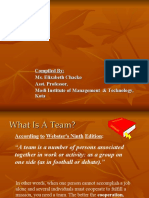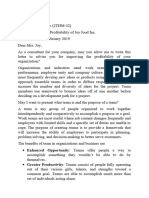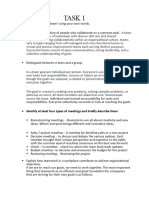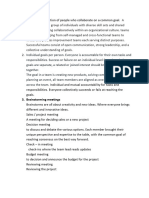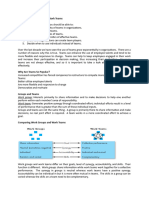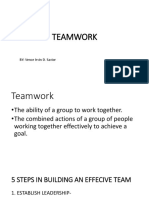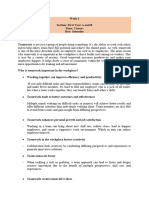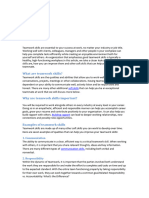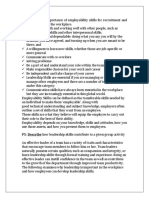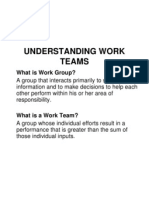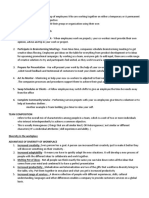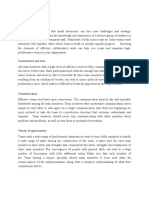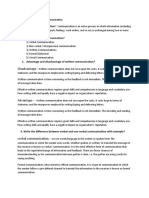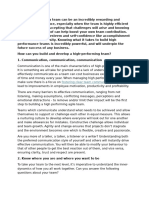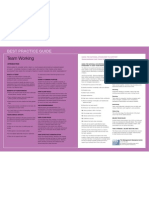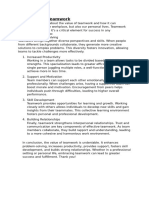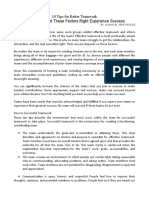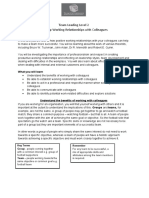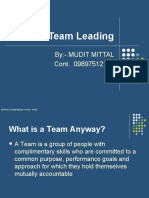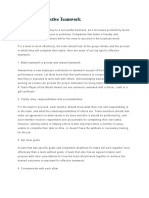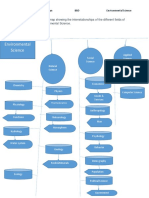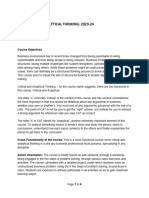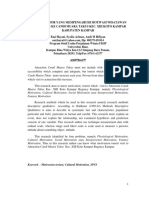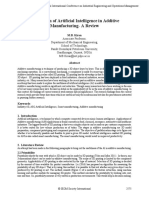0 ratings0% found this document useful (0 votes)
4 viewsL. H. S Professor Assignment
L. H. S Professor Assignment
Uploaded by
black diamondCopyright:
© All Rights Reserved
Available Formats
Download as DOCX, PDF, TXT or read online from Scribd
L. H. S Professor Assignment
L. H. S Professor Assignment
Uploaded by
black diamond0 ratings0% found this document useful (0 votes)
4 views4 pagesCopyright
© © All Rights Reserved
Available Formats
DOCX, PDF, TXT or read online from Scribd
Share this document
Did you find this document useful?
Is this content inappropriate?
Copyright:
© All Rights Reserved
Available Formats
Download as DOCX, PDF, TXT or read online from Scribd
Download as docx, pdf, or txt
0 ratings0% found this document useful (0 votes)
4 views4 pagesL. H. S Professor Assignment
L. H. S Professor Assignment
Uploaded by
black diamondCopyright:
© All Rights Reserved
Available Formats
Download as DOCX, PDF, TXT or read online from Scribd
Download as docx, pdf, or txt
You are on page 1of 4
To: Mrs.
Joy
From: Linn Htet San
Subject: Improving Profitability of Joy food Inc.
Date: Friday 22nd February 2019
Dear Mrs. Joy,
As a consultant of your company, I’m writing this letter to advise you
for improving the profitability of your organization. First, I want to
explain what team is and the purpose of a team.
Work team is a group of employees that works semi autonomously on
recurring tasks. Work teams are most useful where job content
changes frequently and employees with limited skills and a specific
set of duties are unable to cope. The purpose of creating teams is to
provide a framework that will increase the ability of employees to
participate in planning, problem-solving, and decision-making to
better serve customers.
The benefits of team in organizations and business are
Enhanced Opportunity: Teams offer people a way to accomplish
something they wouldn’t be able to do by themselves.
Greater Productivity: Teams consisting of people fully operating
out of their various gifts, talents, and strengths toward a
common goal, instead of trying to mitigate their individual
weaknesses, are able to accomplish much more than set of
individuals acting alone.
More Safety and Accountability: Teams provide strength in
numbers, increase opportunities for cross-training, and promote
mutual accountability, offering stability to organizations in
times of distress or change, and keeping checks and balances in
place.
More Creativity and Innovation: Teams enable individuals to
build upon one another’s ideas to create solutions that go
beyond one person’s limited vision of possibilities.
Greater Joy and Satisfaction among Team Members: Teams
offer a space for people to be social as they work, thereby
finding greater enjoyment of the task and the joy that comes
from being in real relationship.
Better Information Processing: Teams potentially have more
information (because of the knowledge of each member) and
should be able to process it better that individuals.
Broader Perspective: Modern challenges are awfully complex,
and so teams bring together multiple perspectives and insights
into how to respond to those issues.
Increased Representation: Teams allow multiple stakeholder
groups to be represented, resulting in outcomes benefitting those
groups, rather than just the most dominant group.
Increased Equality: Teams level the proverbial playing field (at
least somewhat) so that participants with lower status can more
freely offer their ideas, knowledge, and concerns.
More Dialogue: Teams offer a site where people can voice their
feelings, disagreements, opinions, and ideas.
Promotes Innovation – working in a team means working more
creatively, bouncing ideas off each other and creating innovative
and practical solutions to problems. When working in a team on
a brainstorming exercise, people are usually more confident and
come up with unique and creative ideas.
Support Network – during the challenging times that face any
business, team members will help and rely on each other for
support and guidance. This enables them to focus on the goal,
reduces the stress during difficult times and enables them to
complete projects in an efficient manner.
Enables Flexibility – team member who collaborate in the
workplace are often cross-trained to cover for each other’s
strengths and skills.
Develops Leadership Qualities – whether the team has one
specific member as team leader or whether the team leader
changes depending on the task, all members of the team will be
encouraged to enhance and deploy their own leadership qualities
from time to time.
Improves Service – the benefits of teamwork are not just limited
to the workplace – it also improves the service provided to
customers.
Teams that work well together result in an organization with
happy employees and most people and business prefer to do
business with organizations whose employees have a strong
work ethic and team spirit.
As a leader of your team, you need to realize that each team member
plays a role in your company and each individual is part of the whole.
If you want to work effectively your team must be harmonious. These
are the points of how to build an effective team.
Build trust and respect – The captain needs the trust of his team,
because people follow trust and integrity, not a person.
Uncertainty can be balanced by trust which gives the team the
ability to work together no matter what reality brings.
Be true to your word – If you promise to do something, be sure
you will fulfill it. When team members notice that you are a
reliable person, they will emulate your behavior.
Organize a meeting for all employees – If you want to improve
teamwork, help people get to know each other better. Organize
in-person meetings for all workers (all teams) at least once a
year -- more often if at all possible.
Take advantage of conflict – There are no teams exempt from
occasional misunderstandings. Don't complicate the situation by
deciding what is good or bad. Listen to all sides carefully and
then talk to other team members who observed the quarrel.
Make hiring a team effort – experience and suitable
qualifications are important -- but the most important qualities
to hire for are always personality and social skills that are
compatible with your team.
You might also like
- Compiled By: Ms. Elizabeth Chacko Asst. Professor, Modi Institute of Management & Technology, KotaDocument23 pagesCompiled By: Ms. Elizabeth Chacko Asst. Professor, Modi Institute of Management & Technology, Kotaelizabethchacko2009No ratings yet
- Approaches To The Study of PADocument62 pagesApproaches To The Study of PAPrem Chopra100% (1)
- Professor AssignmentDocument4 pagesProfessor Assignmentblack diamondNo ratings yet
- Team BuildingDocument13 pagesTeam Buildingmadxeliz100% (2)
- Case Study 1Document4 pagesCase Study 1Montzo Diana BaltonadoNo ratings yet
- Document 4Document21 pagesDocument 4gaurikasinghchauhanNo ratings yet
- 7 C's (Keys) To Building Great Work Teams: Suzanne Willis ZoglioDocument6 pages7 C's (Keys) To Building Great Work Teams: Suzanne Willis ZoglioSahil UppalNo ratings yet
- Growing A TeamDocument8 pagesGrowing A Teamrania.rg3No ratings yet
- "Talents Wins Games, But Teamwork and Intelligence Wins: Champions" M. JordanDocument4 pages"Talents Wins Games, But Teamwork and Intelligence Wins: Champions" M. JordanAdelina LoryNo ratings yet
- Team Building Team Building Refers To A Wide Range of Activities, Presented To Businesses, SchoolsDocument9 pagesTeam Building Team Building Refers To A Wide Range of Activities, Presented To Businesses, SchoolsWiljohn de la CruzNo ratings yet
- AssessmentDocument8 pagesAssessmentgaurikasinghchauhanNo ratings yet
- Project BST (Autosaved) (Autosaved) 7777777Document18 pagesProject BST (Autosaved) (Autosaved) 7777777ghettoNo ratings yet
- 7 Keys To Building Great Teams: by Suzanne W. Zoglio, PH.DDocument4 pages7 Keys To Building Great Teams: by Suzanne W. Zoglio, PH.DSuresh BasandraNo ratings yet
- Team BuildingDocument9 pagesTeam Buildingchanus19No ratings yet
- Describe Four You Would Implement When Managing A Team To Ensure That All Members Are Clear On Their Responsibilities and RequirementsDocument12 pagesDescribe Four You Would Implement When Managing A Team To Ensure That All Members Are Clear On Their Responsibilities and RequirementssumanpremNo ratings yet
- Why Team Building Is So Important: Case Study (HRM 2) Lovell L. CabardoDocument2 pagesWhy Team Building Is So Important: Case Study (HRM 2) Lovell L. CabardoMontzo Diana BaltonadoNo ratings yet
- Discuss The Importance of Quality Team Works, and Team BuildingDocument12 pagesDiscuss The Importance of Quality Team Works, and Team Buildingapi-541043437No ratings yet
- Effective Team PerformanceDocument19 pagesEffective Team Performanceprasanna_lad11100% (2)
- Chapter 10 Understanding Work Teams HBODocument6 pagesChapter 10 Understanding Work Teams HBONoceja, Mark Allen L.No ratings yet
- TEAMWORK Human RelationsDocument7 pagesTEAMWORK Human RelationsVence SaviorNo ratings yet
- Team Work Week 1-2Document5 pagesTeam Work Week 1-2Cueto, Trisha Almae D.No ratings yet
- Twelve Ways To Build An Effective Team PDFDocument4 pagesTwelve Ways To Build An Effective Team PDFsteam100deg1658No ratings yet
- As Individual What Is Your Role in Team Building and Team PerfomanceDocument3 pagesAs Individual What Is Your Role in Team Building and Team PerfomanceJoleyNo ratings yet
- AdmasDocument5 pagesAdmaswoyni negeNo ratings yet
- Unit 2: MBH402 Mba 4 SemesterDocument6 pagesUnit 2: MBH402 Mba 4 SemesterSáas JainNo ratings yet
- TDW Module 1Document52 pagesTDW Module 1Badiger DiwakarNo ratings yet
- 7 Examples of Important Teamwork SkillsDocument4 pages7 Examples of Important Teamwork SkillsMariem SalehNo ratings yet
- Benefits of Team Role 0 Balancing Skills WithinDocument6 pagesBenefits of Team Role 0 Balancing Skills Withinwifoli8542No ratings yet
- Skills Ass2Document8 pagesSkills Ass2Mohamed EsamNo ratings yet
- LS Understanding Work TeamsDocument7 pagesLS Understanding Work TeamsDheerendra NathNo ratings yet
- What Is A Team?Document10 pagesWhat Is A Team?vandanagahlot100% (1)
- Team Dynamics at WorkDocument32 pagesTeam Dynamics at WorkNarayan S VinodNo ratings yet
- Workplace Team: Teamwork-People Who Cooperate With Their Group or Organization Using Their OwnDocument4 pagesWorkplace Team: Teamwork-People Who Cooperate With Their Group or Organization Using Their OwnRia LetrodoNo ratings yet
- Basic Com 2. Info Sheet 2.1-1 On Team RoleDocument6 pagesBasic Com 2. Info Sheet 2.1-1 On Team RoleJhoerey D VillegasNo ratings yet
- Motivation Towards Teamwork: Datulna B. Mamaluba, JR., RcrimDocument20 pagesMotivation Towards Teamwork: Datulna B. Mamaluba, JR., RcrimDatulna Benito Mamaluba Jr.No ratings yet
- FHS PresentationDocument9 pagesFHS PresentationvivekvpanickerNo ratings yet
- Commitment and TrustDocument10 pagesCommitment and TrustsjktldgkupangNo ratings yet
- Teamwork 1Document7 pagesTeamwork 1singhharshvardhan688No ratings yet
- Leadership NotesDocument20 pagesLeadership NotesFarheen ShaikhNo ratings yet
- Keys To Teamwork / Teambuilding Success: Rearranged By: Arahimbarani Visit: "Give Your Blog A Home"Document14 pagesKeys To Teamwork / Teambuilding Success: Rearranged By: Arahimbarani Visit: "Give Your Blog A Home"moksziNo ratings yet
- Teamwork and LeadershipDocument31 pagesTeamwork and LeadershipFrank Korang-DanquahNo ratings yet
- Participate in Workplace CommunicationDocument8 pagesParticipate in Workplace CommunicationNatnael AlemayehuNo ratings yet
- Team Work Is Dream WorkDocument15 pagesTeam Work Is Dream WorkpkNo ratings yet
- 2Document3 pages2Babu FrahmedNo ratings yet
- WA12Document5 pagesWA12Sneha BalajiNo ratings yet
- Team WorkingDocument1 pageTeam WorkingFranklin SondakhNo ratings yet
- The Value of TeamworkDocument1 pageThe Value of Teamworkmpratik636No ratings yet
- Group DynamicsDocument13 pagesGroup DynamicsMaynard ArandaNo ratings yet
- Working With Team Enviroment Level 2Document12 pagesWorking With Team Enviroment Level 2HabteNo ratings yet
- Qualities of A LeaderDocument16 pagesQualities of A LeaderNjine PatrickNo ratings yet
- Basic 2Document6 pagesBasic 2Ollh AdmittingNo ratings yet
- 10 Tips For Better TeamworkDocument2 pages10 Tips For Better TeamworkBùi Tú AnhNo ratings yet
- Team Leading Level 2 Develop Working Relationships With ColleaguesDocument22 pagesTeam Leading Level 2 Develop Working Relationships With Colleaguesddmarshall2838No ratings yet
- Building Better TeamsDocument35 pagesBuilding Better TeamsIrtiza Shahriar ChowdhuryNo ratings yet
- Managing PeopleDocument39 pagesManaging PeopleRushdi JabirNo ratings yet
- Team Leading: By:-Mudit Mittal Cont. 09897512191Document24 pagesTeam Leading: By:-Mudit Mittal Cont. 09897512191crazychampNo ratings yet
- What Is A Team?Document5 pagesWhat Is A Team?Bryle James BialaNo ratings yet
- Business CommunicationDocument7 pagesBusiness CommunicationAnh Thu VuNo ratings yet
- Top Tips For Effective TeamworkDocument2 pagesTop Tips For Effective TeamworkOLANo ratings yet
- Boost Team Performance: Expert Guide and Innovative Team Building IdeasFrom EverandBoost Team Performance: Expert Guide and Innovative Team Building IdeasNo ratings yet
- TEAM ORIENTATION, AsclkmnkclDocument2 pagesTEAM ORIENTATION, AsclkmnkclMrinaal Prem Swaroop ShriivaastavaNo ratings yet
- Ngapali BeachDocument9 pagesNgapali Beachblack diamondNo ratings yet
- BTHM-3108 Attendance ListDocument1 pageBTHM-3108 Attendance Listblack diamondNo ratings yet
- BrochureDocument4 pagesBrochureblack diamondNo ratings yet
- 83rd TOPIK II Answer KeysDocument2 pages83rd TOPIK II Answer Keysblack diamond100% (1)
- Atypical Speech and Language Development: A Consensus Study On Clinical Signs in The NetherlandsDocument11 pagesAtypical Speech and Language Development: A Consensus Study On Clinical Signs in The NetherlandsPAULINA ANDREA CÁCERES ZAPATANo ratings yet
- PNU Professional Education ReviewerDocument15 pagesPNU Professional Education ReviewerMarife CulabaNo ratings yet
- Module 1 (No Answer Key)Document18 pagesModule 1 (No Answer Key)Yna Foronda89% (9)
- Computer Literacy Among Employees of Government and Non-Government Agencies Basis For The Formulation of Computer Training ProgramDocument9 pagesComputer Literacy Among Employees of Government and Non-Government Agencies Basis For The Formulation of Computer Training ProgramInternational Journal of Innovative Science and Research TechnologyNo ratings yet
- Thesis List of TopicsDocument7 pagesThesis List of Topicsmichellerobertsonportland100% (2)
- MBA VAD - 104 - UNIT 3 Notes andDocument29 pagesMBA VAD - 104 - UNIT 3 Notes andPranjal ShuklaNo ratings yet
- Topic 1. Nature of Research I. Learning OutcomeDocument6 pagesTopic 1. Nature of Research I. Learning OutcomeSerc YablaNo ratings yet
- 1 s2.0 S0378779622001882 MainDocument10 pages1 s2.0 S0378779622001882 MainAtakan ÖztürkNo ratings yet
- Reflexiones para Una Concepción Dialógica Entre Tecnología y Cultura - BHSDocument24 pagesReflexiones para Una Concepción Dialógica Entre Tecnología y Cultura - BHSnorkymNo ratings yet
- Environmental Science An Interdisciplinary DisciplineDocument3 pagesEnvironmental Science An Interdisciplinary DisciplineKATHERINEMARIE DIMAUNAHANNo ratings yet
- MCNAY - Social Freedom and Progress in The FamilyDocument18 pagesMCNAY - Social Freedom and Progress in The FamilyRaphael NascimentoNo ratings yet
- Lesson PlanDocument6 pagesLesson PlanMarshy LeeNo ratings yet
- Quantitative Methods Lesson 1Document20 pagesQuantitative Methods Lesson 1Camille EspinoNo ratings yet
- Jesicha Mayrisa Kirana 11000120190193 Law and Society ResumeDocument7 pagesJesicha Mayrisa Kirana 11000120190193 Law and Society Resumejesicha mayrisaNo ratings yet
- Making of SPED Instructional MaterialsDocument2 pagesMaking of SPED Instructional MaterialsUntong Llanto HazelNo ratings yet
- PR 1 Quarter 4 Week 1 4Document27 pagesPR 1 Quarter 4 Week 1 4Ackie Inacay RosarioNo ratings yet
- Critical and Analytical ThinkingDocument4 pagesCritical and Analytical ThinkingRohith kumar100% (1)
- Finkel, 2017, The Psychology of Close RelationshipsDocument31 pagesFinkel, 2017, The Psychology of Close RelationshipsZaia100% (1)
- Essay Reflection On Title DefenseDocument2 pagesEssay Reflection On Title DefenseCHERRY MAE CORTES CABALLESNo ratings yet
- Macro TeachingDocument22 pagesMacro Teachingaravindhmuthusamyunofficial100% (1)
- MA 21001 Probability and Statistics For EngineersDocument2 pagesMA 21001 Probability and Statistics For Engineersas2faasbujsacNo ratings yet
- Research Methods: Case-1Document14 pagesResearch Methods: Case-1shahbazNo ratings yet
- Grade 9 Mathematics 9 CUF Feb 16 2024Document3 pagesGrade 9 Mathematics 9 CUF Feb 16 2024Jefferson TorresNo ratings yet
- Jurnal Emi HayatiDocument15 pagesJurnal Emi HayaticlaraauliazulmanNo ratings yet
- Module 9 (Prof Ed 11 FS 1)Document10 pagesModule 9 (Prof Ed 11 FS 1)angeline RequejoNo ratings yet
- Monas Resume 1 - Mona Sanjay TuptewarDocument1 pageMonas Resume 1 - Mona Sanjay TuptewarMysony TvNo ratings yet
- Application of Artificial Intelligence in Additive Manufacturing-A ReviewDocument12 pagesApplication of Artificial Intelligence in Additive Manufacturing-A Reviewwachid yahyaNo ratings yet
- UntitledDocument17 pagesUntitledChristhia AbelloNo ratings yet
- Keith Tudor Cocreative PerspectiveDocument14 pagesKeith Tudor Cocreative PerspectiveMihajlo PericNo ratings yet
